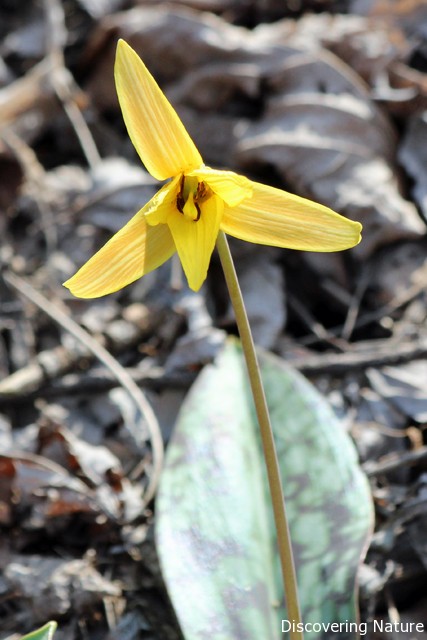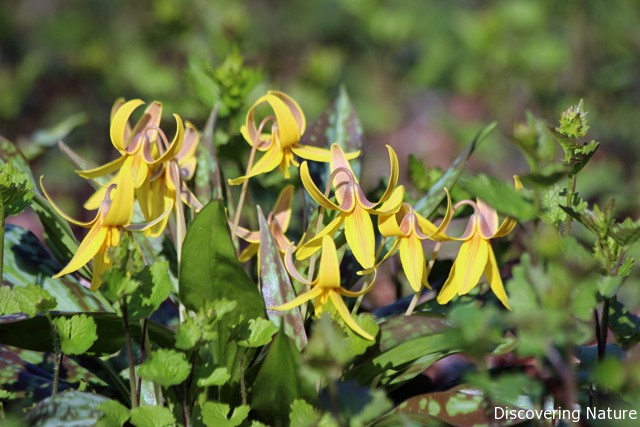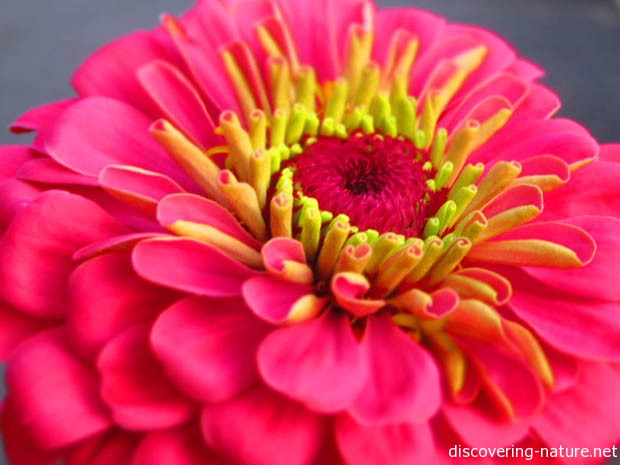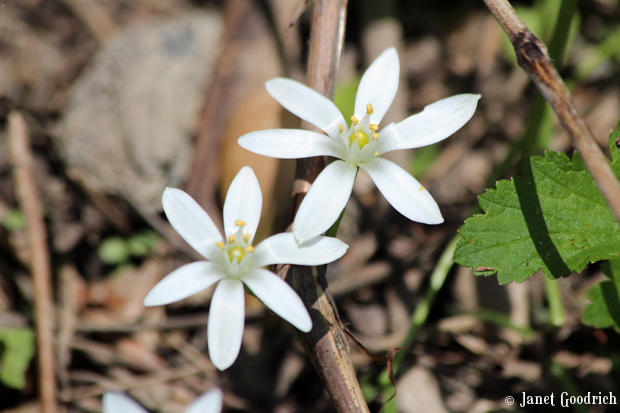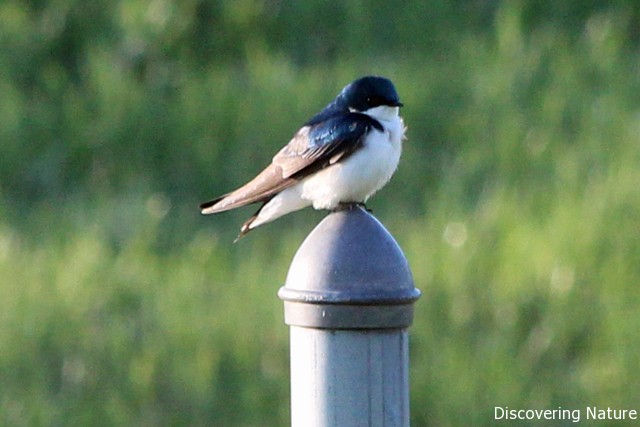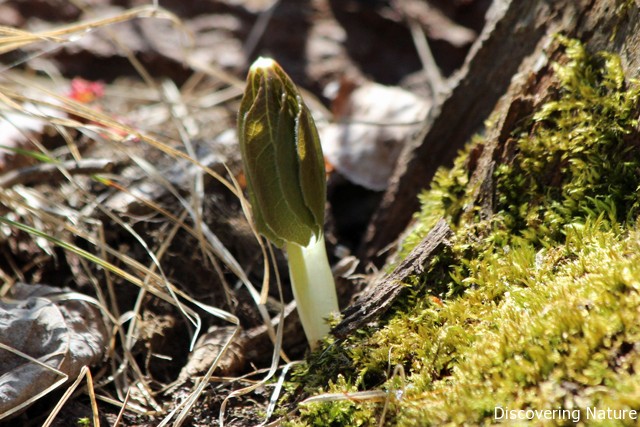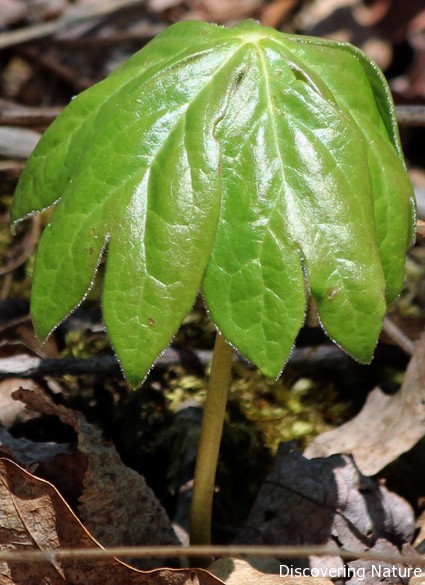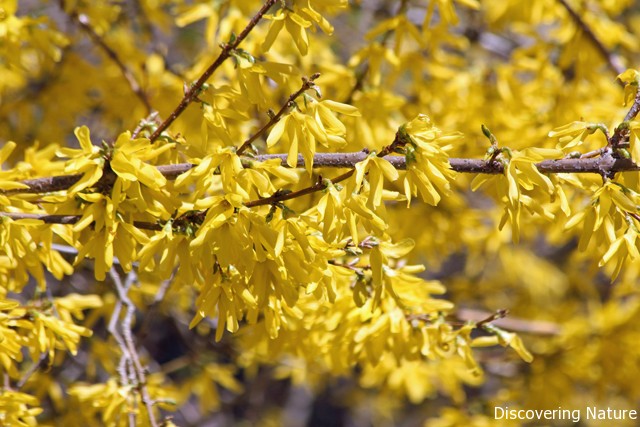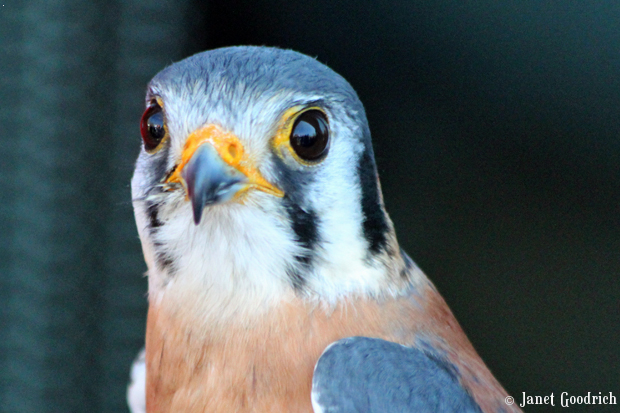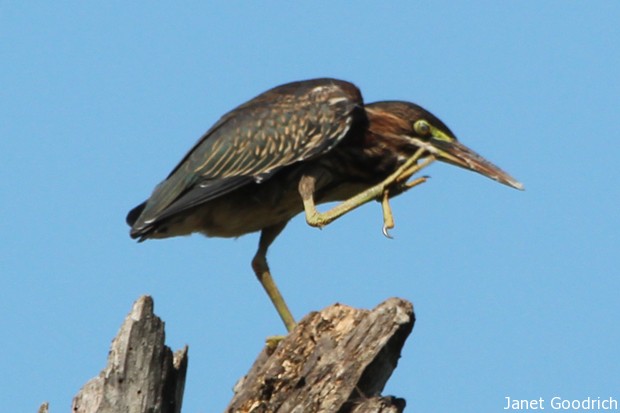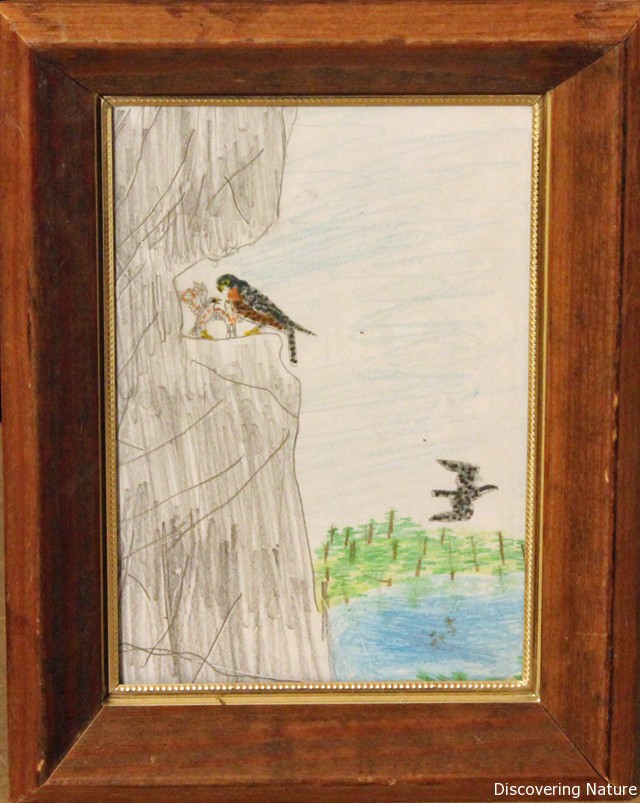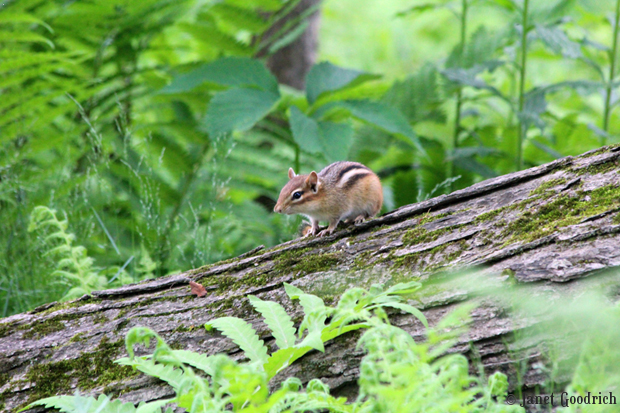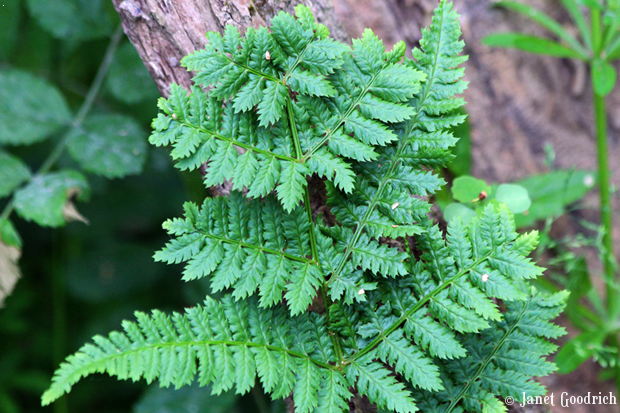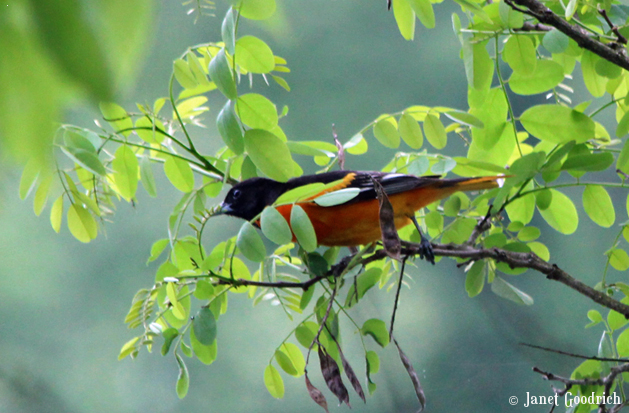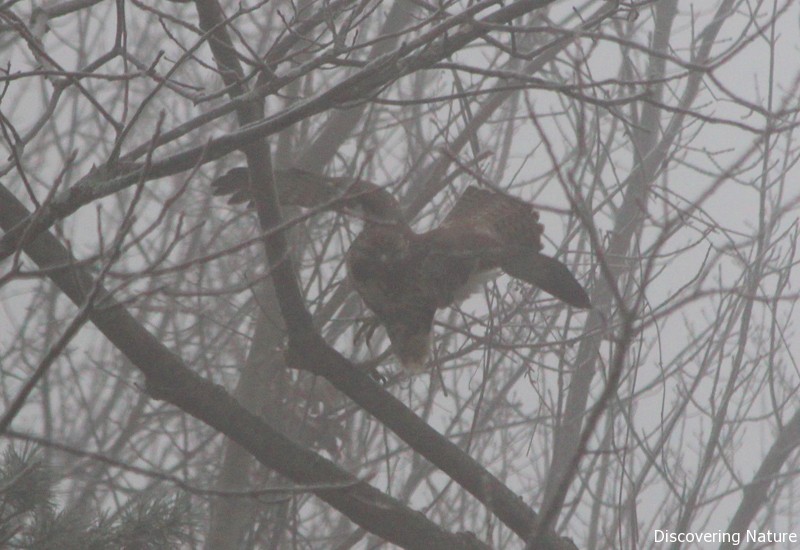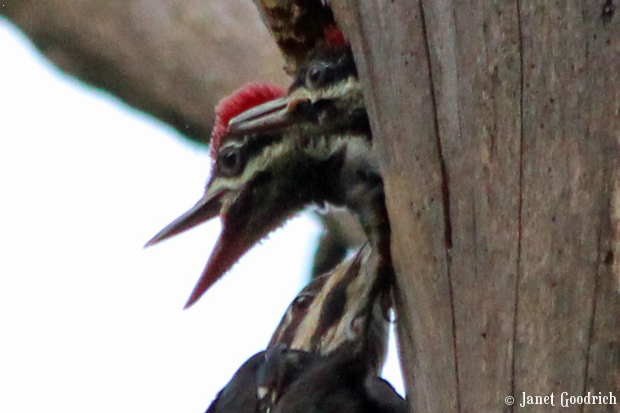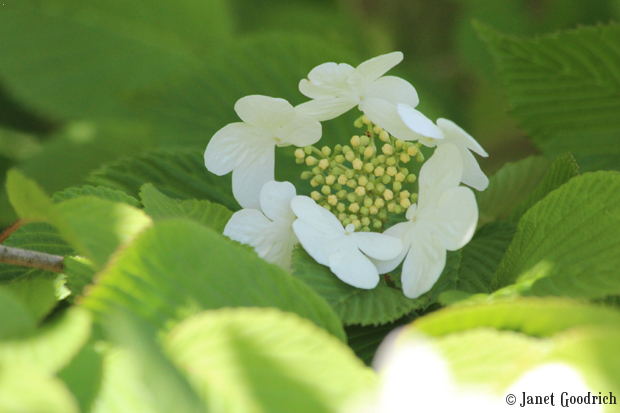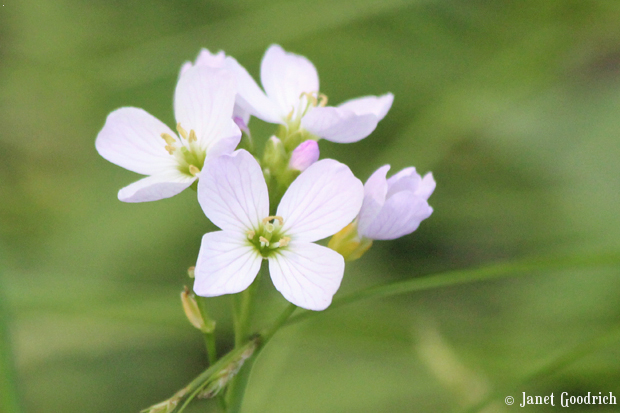Plants
-
Trout Lily
Yesterday as we explored alongside the river, we came upon lots of these lovely yellow flowers sprouting up. I came home and looked them up in our wildflower book.
-
Spring flourishes
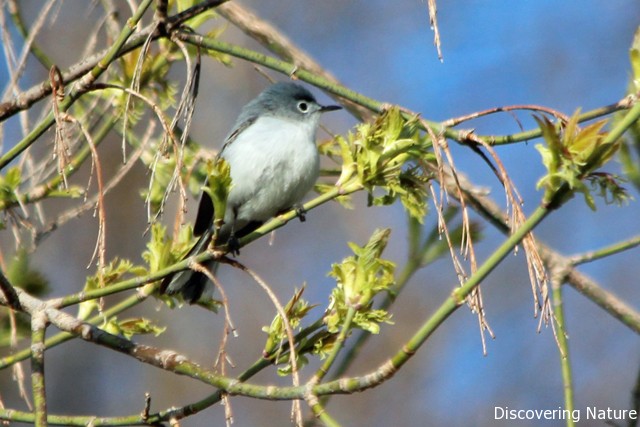
Blue-gray gnatcatcher My daughter was excited to spot this tiny bird making its buzzing call as it foraged among the leaves. It seemed never to be either still nor silent, but it was a treat to see.
We also saw a number of yellow-rumped warblers, a palm warbler, and more ruby-crowned kinglets.
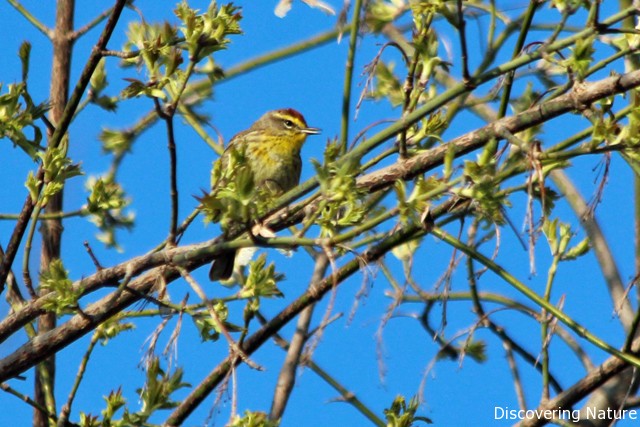
Palm warbler 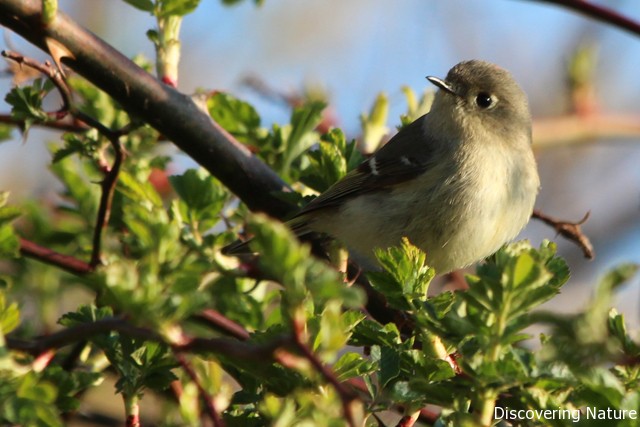
Ruby-crowned kinglet A swallow watched us, his mate a few feet away on the fence.
On a walk yesterday, we looked hopefully at the pileated woodpecker nest cavity we watched last year. To our surprise, a bird was peering out — but it wasn’t a pileated woodpecker. It was a northern flicker! I’m not sure if it was resting or trying on the nest for size.
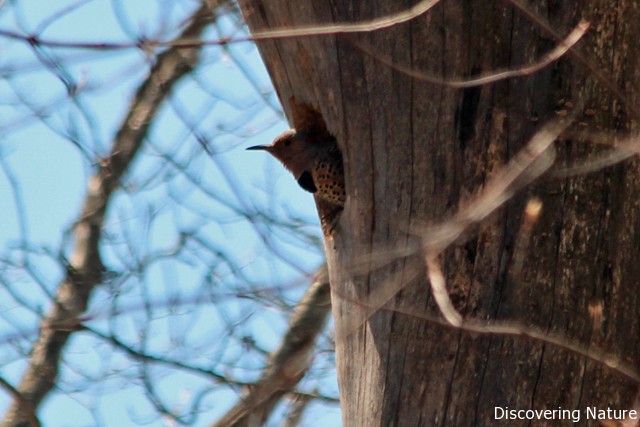
Northern flicker We saw a few other beauties on our walk as well, from various instances of dead-wood art….

 …to may apples unfurling their umbrellas.
…to may apples unfurling their umbrellas.These are just the things I was able to get pictures of, but among the other sights that have pleased us lately are the brown thrasher we saw “gardening” in the dirt under our bird feeder this morning, the fox that ran beside us for awhile on our bird watching jaunt, and the turkey that startled up and flew away in the brush nearby (nesting?). It’s a great time of year because every few days there is something new popping out of the ground or into the treetops.
-
Glory of the Snow
Not sure how I’ve missed these lovely little flowers interspersed among the grass in various lawns around and about, but I’ve noticed it this year. It’s called chionodoxa, poetically nicknamed Glory of the Snow.
-
Daffodils
-
Worth a thousand words
-
Walk at the Pond
The sun was out yesterday morning, and I urged the girls on in their schoolwork, dangling the carrot of a walk in the sun. They rose to the challenge, and we headed off in good time.
First to sound the alarm was this guy: “Humans! Humans!”
Apparently he was ignored, because just beyond him we saw a couple of green herons.
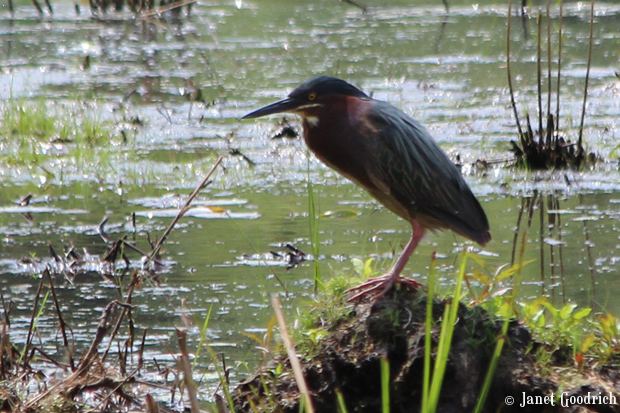
This one looked pretty typical... 
...till the wind blew and gave it a punk makeover. There was a whole cavalcade of geese camped out on the berm across the pond. They made an impressive racket as they took off. We could almost feel the wind from their beating wings.
There were some other water birds around too.
There were several great blue herons there — 4 or 5. They may be feeding young at the heronry down the river.
The bracken was particularly lush…
And there were some wildflowers around. Learning the names is helping me to feel more like I belong in this place.
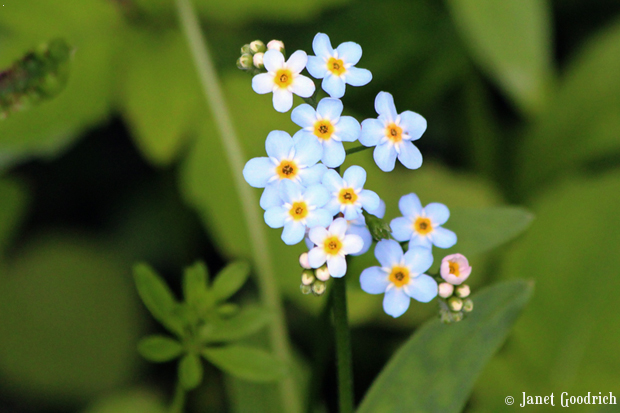
Forget-me-nots 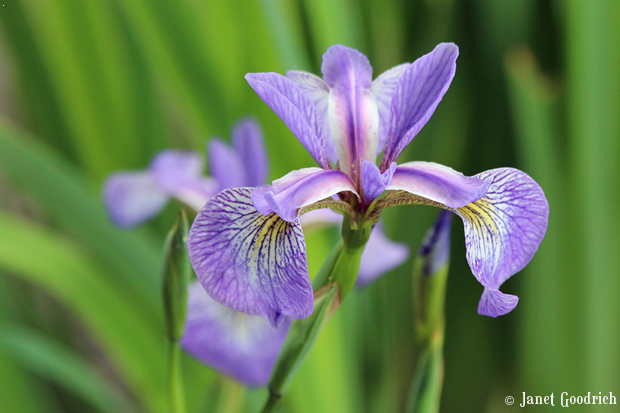
Blue flags 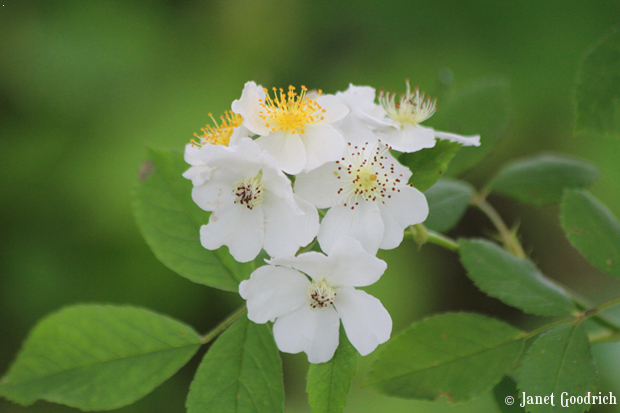
Bramble (I think) 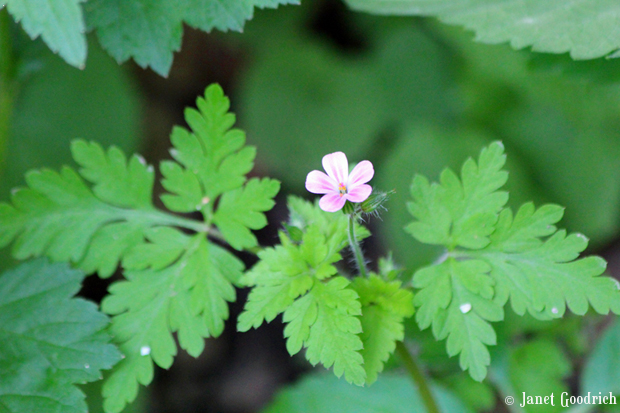
Mystery flower Back at the car, the oriole that usually hangs out in Old Man Willow was humming his way through lunch. I thought that the Burgess Bird Book named the oriole “Glory,” but it’s actually “Goldie.” I prefer Glory. It doesn’t get any more glorious than this colorful bird with his agreeable warble.
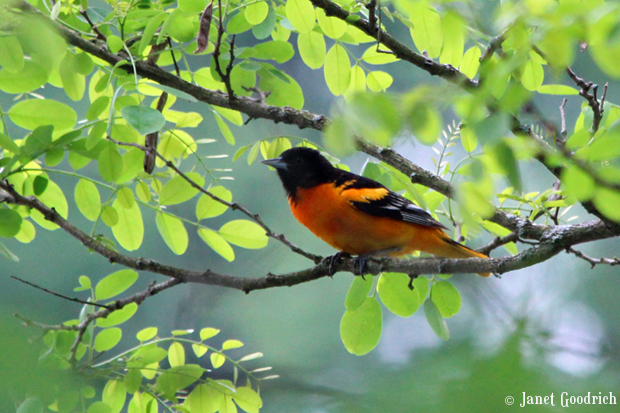
Glory the Oriole By then the sun was retreating behind a bank of clouds, so the flash of fire from Mr. Oriole was all the more welcome.
When we got home, Younger Daughter requested tree swallow coloring pages. Older Daughter requested a library book on caring for injured robins (for reasons I’ll share in a later post). I’ve been slacking on official nature journal pages, but I think we should probably get back into them. They’re not necessary for learning, I don’t think, and only sometimes are they an aid to seeing. But they do document the experiences of our various walks together. Someday I want the girls to have them to look back through. Once they learn the name of a flower or the habits of a bird, they will remember. But the particular treasures of particular walks may fade or get mixed up over time.
-
Spring White
The whiteness of winter gets oppressive after awhile. Even in winters like this last one, which dropped very little snow, the sky is often a dull white overcast, and there’s a general absence of color.
Considering this, it’s strange how happily I welcome the flowers of spring — even though so many of them are white. Theirs is a more vibrant white than snow, often accented with a delicate touch of color here or there, and wrapped up in the transition to brighter days and new life.
What are these? I don’t find them in our Peterson’s First Guide.
I don’t find these either.
This next one is Dame’s Rocket, I think.
Here are a few more:

Star Flower 
Wild Blueberry 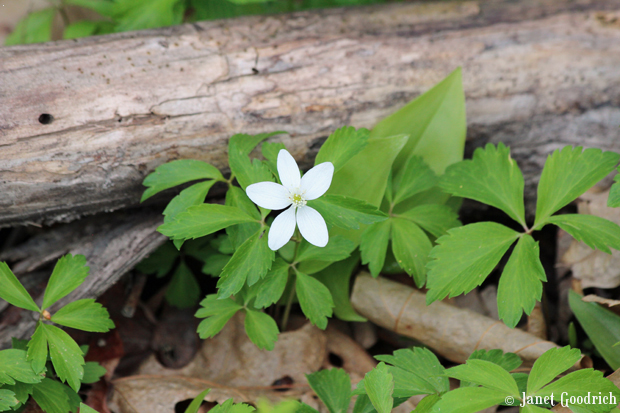
Wood Anemone 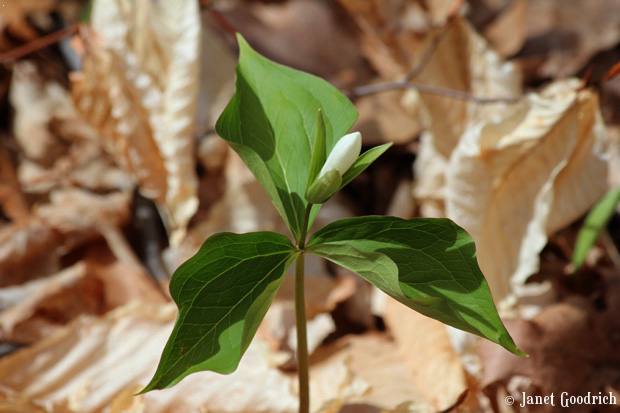
Trillium -- not quite blooming! 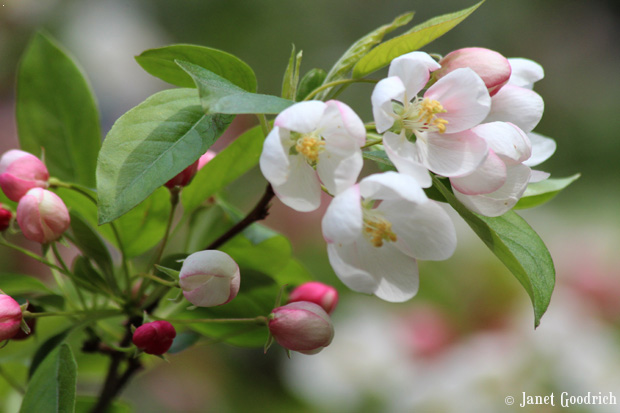
Wild Cherry (I think...) These two I posted previously, but I can’t leave them out.
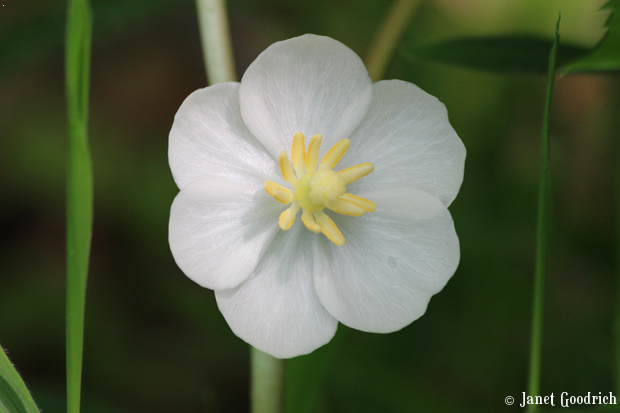
May Apple 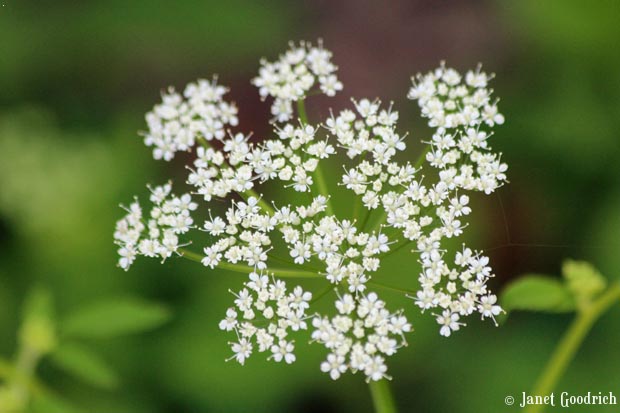
Queen Anne's Lace I’m simply learning their names. Each bloom has a story to tell, but for now I’m just getting familiar with the titles!
-
Ferns
There are more varieties of fern than I’ve noticed before.
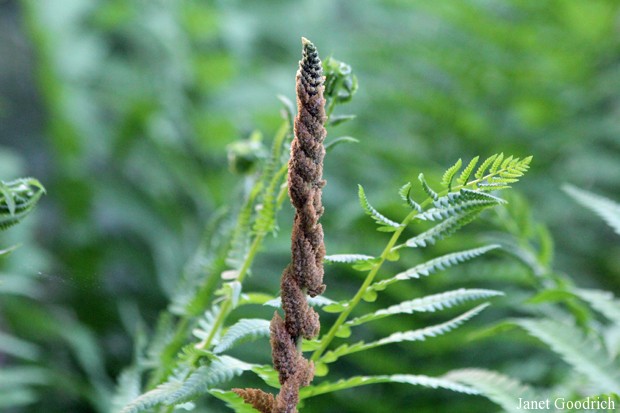
Cinnamon Fern 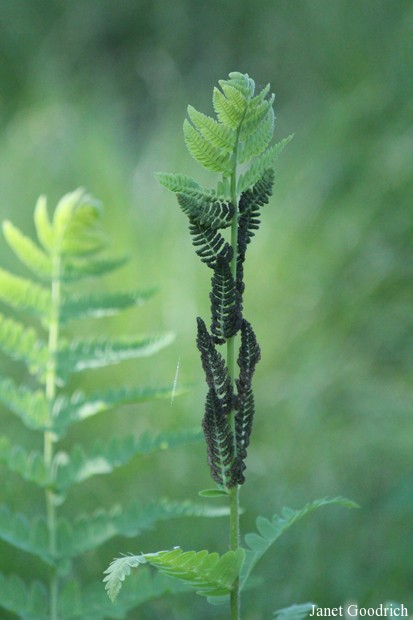
Interrupted Fern 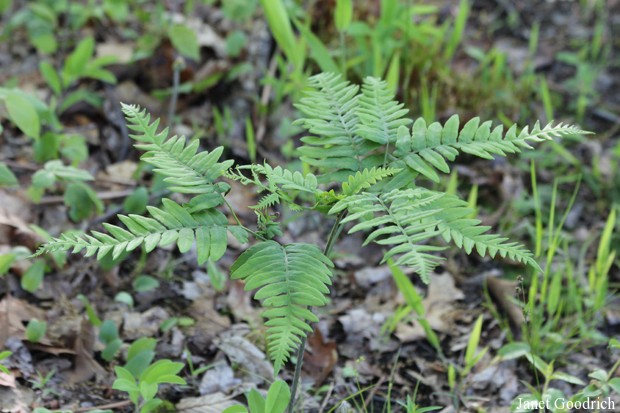
Bracken Fern 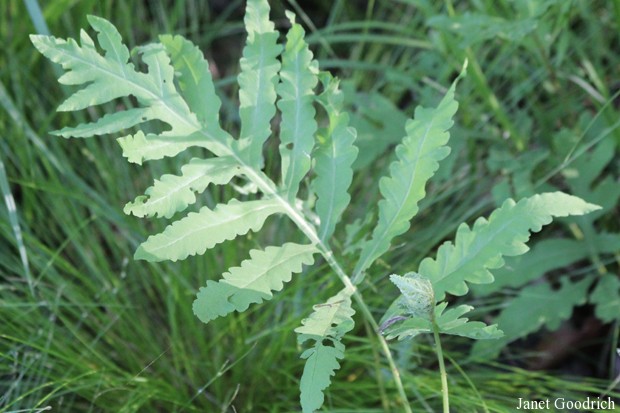
Sensitive Fern We’ve seen these four kinds of fern on our walks of late. I’ve been comparing them on the basis of the shapes of the pinnules, the manner in which the fronds grow from the main stem, and the manner in which the spore cases grow — whether as separate fronds, or as interspersed pinnae. The shades of green are slightly different too.
A little vocabulary I’m learning: The main stem is the stipe; the frond stem is the rachis; the whole “arm” is the frond; the individual “fingers” growing from the frond are the pinnae; the individual “leaves” growing from the pinnae are the pinnules.
